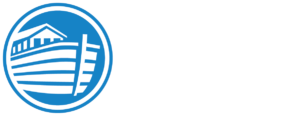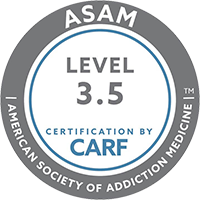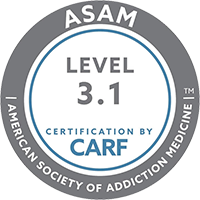This article was originally published in the Summer 2024 issue of Living Recovery. To view the full issue, click here.
On any given day, you may find a typical child playing with their friends on the playground. Torin Gelner, however, often accompanied her mother to mandatory Alcoholics Anonymous (AA) meetings.
What she couldn’t see was how it would shape her life. Addiction science experts have found that addiction is often times generational – deeply rooted in trauma, passing down patterns of behavior and coping mechanisms from one generation to the next.
“Children raised in environments where addiction is present face increased risks of developing mental health issues and substance use disorders themselves, perpetuating a cycle that is difficult to break without comprehensive support and intervention,” said Sarah Daniels, Addiction Recovery Care’s Sr. Director of Clinical Operations.
Research, such as the Adverse Childhood Experiences (ACE) study, has shown that traumatic experiences in childhood—such as neglect, abuse, or exposure to substance abuse—are significant risk factors for developing addiction later in life.
Torin faced numerous barriers during her childhood. Reflecting on this, she admits, “I didn’t understand that piece of addiction.”
Despite the odds, Gelner excelled in school, taking Advanced Placement (AP) classes, and she earned the prestigious Commonwealth Diploma.
“I knew that the easiest way to get out of [my hometown] was to get good grades, get a scholarship, and go to school somewhere,” said Gelner.
But things did not go according to plan. Instead, she started working in the restaurant industry and admits it changed the trajectory of her life.
30 Days Was Not Enough
By the age of 19, Gelner found herself in treatment for a pain pill addiction. She tried to start over, got a new job, and attempted to leave a bad relationship.
“I just wasn’t ready to quit,” said Gelner. “I was miserable on the inside.”
When she was about 22, she started using heroin heavily and her addiction spiraled out of control.
“I had reached a point where I had lost everything,” Gelner added. I lost my job, got kicked out of the place I was renting, and gave my cats away. And that was the real wake-up moment for me.”



One Chance
Gelner recalls meeting an Addiction Recovery Care (ARC) employee one day in court who gave her an opportunity that changed her life. “The judge gave me one shot, and my mom drove me to Harlan [County].”
She entered treatment at Lydia’s House — a residential treatment center for women in Harlan County — and that one shot has turned into six years of recovery.
“You can do the selfish and easier thing, or you can challenge yourself and do the hard thing,” said Gelner. “Early on, I struggled with doing the difficult things. But when I started to focus on that one chance, 30 days turned into 60 and then 90, and here I am today.”
Gelner says ARC’s faith-based, evidence-based programming opened her eyes to a new world.
“Compassion,” Gelner recalled. “They [the staff] were so compassionate. The more I was there, the more I opened my mind.”
Peer-to-peer interactions allowed others in early recovery to pour into Torin, transforming her outlook and providing her hope.
New Beginnings
Torin eventually became an intern at Karen’s Place Maternity Center, which provides residential treatment for pregnant and postpartum women with substance use disorders. Soon after, she would earn her Kentucky Peer-Support Certification, beginning a career to change lives.
“It was really powerful to be able to use my story and the things that I’ve been through to connect with other people and help them make it to the other side of those things,” noted Gelner.
In the spring of 2024, she passed her test to become a certified alcohol and drug counselor. Torin says she gained a foundation at ARC to build her new life on and found her support group simultaneously.
“ARC is my family,” Gelner said passionately. “The people here have always been there to support me. When you’re constantly growing and learning, it becomes more than just a job — it’s more than a career, even. You begin to find value in things.”
Torin was accepted into the Social Work program at Eastern Kentucky University and is on track to graduate in the fall of 2025. She then plans to pursue a Master’s degree.
So, what is her message to those currently battling addiction?
“Even if you start today, you can get your entire life back if you really want to — as long as you are willing to take the first step, make the phone call, or whatever it might be.”






